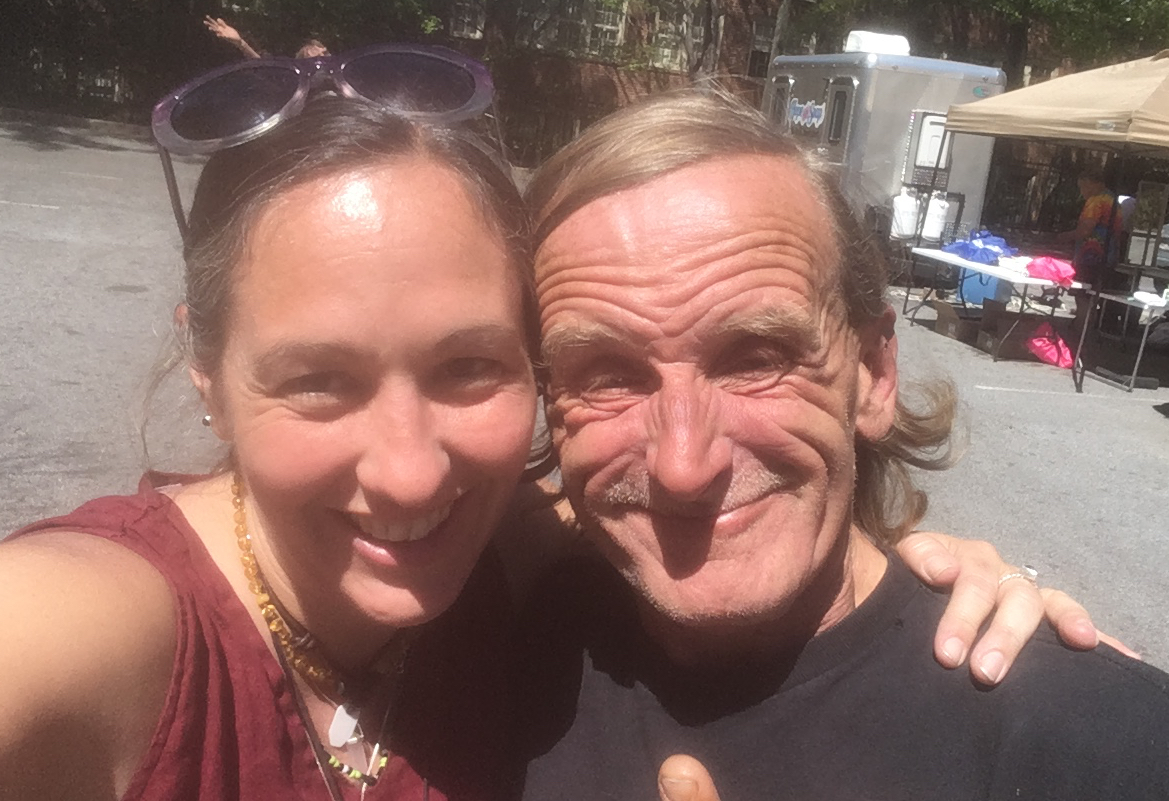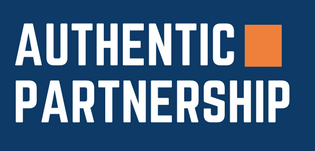That’s what people often say when I mention that I manage online joint venture partnerships.
If you’re a conscious, authentic entrepreneur and you’ve ever glimpsed behind the curtain of the big, impressive, “six-figure” JV launches, you might feel similarly.
Why have JVs gotten such a bad rap?
After all, isn’t partnering with influential people is one of the most powerful and effective ways to grow your business? Yes.
But is it one of the most pushy and over-hyped techniques in the marketing world?
Also yes.
But I love JV partnerships.
I believe they can be done in a way that’s authentic, mutually beneficial, and that helps subscribers as well as partners.
That’s why I do the work I do the way I do it as a JV manager.
So what exactly is a JV manager?
A Joint Venture Manager is one of the most important people you’ll ever hire in your business. It’s the person who manages your relationships with influential people in your industry. They’ll take care of both the nitty-gritty and the soft skills of authentically building and maintaining relationships with your partners, from outreach to partners and getting them on board with your launch, to making sure your partners do the promotion they promised.
A JV manager is a matchmaker, marketing strategist, communicator, project manager, data analyst, and sales strategist, all in one.
If you’re thinking about hiring a JV manager, you’re ready to scale your business to a whole new level, and you’re looking for big results.
And those big results are possible.
But the manner of approach and the manner of working with potential partners determines everything.
Over the years, I’ve seen many approaches to JV management that I don’t like, and I’ve developed very strong beliefs about how partnerships should and shouldn’t be done.
More on that in a minute.
First…
Is your business ready for JV partnerships?
Most businesses aren’t ready for JV partnerships or launches. Even if you are, we may not be a good fit to work together. Here’s what I’m looking for in my JV management clients.

My JV and launch management consulting could be a great fit for you if…
- You know exactly what your unique selling proposition is, and you can clearly and briefly articulate it in a way that truly intrigues and interests people who know your industry well. When you talk with people in your industry about what you do, their response is always “wow, tell me more.”
- You’re more interested in building long-term partnerships with people you resonate with than in getting big names on your launch. You’re not tempted by big leaderboards as much as you are passionate about aligned relationships.
- You’ve never really done JV partnerships because you think they’re inauthentic and a bit sleazy. Or, you’ve tried them and didn’t like the way your “partners” treated you, or the way you felt you “had” to treat them.
- You have strong opinions about what other people in your industry are doing wrong or the ways their approach is ineffective or inauthentic (although you might be hesitant to voice these opinions).
- You’re willing to take my advice, and you are committed to making sure you get me the collaterals I say are needed in the timeframe I say I want them.
- You have at least 5,000 subscribers on your email list.
- Your product is scalable.
- I like your product and I think it’s worth sharing.
- Your product makes the world a better place. But really.
I don’t think your business is ready for JV management, or I’m the wrong manager for you, if…
- Your product is not unique, or you can’t articulate why it’s unique. If you don’t have strong opinions about what other people in your industry are doing wrong, or if your deeply honest one-sentence summary of what you offer sounds a lot like everybody else’s, I am not the right JV manager for you.
- Your message or your niche are fuzzy or unclear. You have a hard time explaining in a single, clear sentence what you offer and why it’s special. (If this is the case for you, I recommend you look into Tad Hargrave’s niching resources.)
- You don’t know what makes customers buy your product, and you can’t reliably replicate or predict sales. (If this is you, I recommend you schedule a value proposition consultation with Peter Sandeen.)
- Your sales conversion rates are below average for your industry, and you’re not sure why.
- You dream about Marie Forleo or Jeff Walker promoting your launch (even though what you do is similar to what they do).
You could be a fit for one of my higher-end JV management packages if…
- You know exactly what your customer journey is and what people need to know, experience, and understand before they buy.
- You know what your conversion rates are (for opt-ins and sales), you know how to replicate them, and they’re at least average for your industry.
- You have already made at least 20 sales (if your product is over $1000) or at least 40 sales (if your product is under $1000).
- You already have one or two people on your team at least part-time (probably a virtual assistant, and possibly a copywriter or graphic designer).
- You can pay at least $100 commission to JV partners, in addition to the commission you pay me (usually JV commission will be 30-50% of total price, so your product should be at least $200), OR your past launches have averaged at least $4 earned per click for partner commissions.
If you fit all of these criteria, you’re a good fit for one of my two higher-end packages that include pitching new JV partners.
Ok, so you’re pretty sure your business is ready for a JV manager. In that case…why me?
Who am I, and what do I know about JV management?
I had worked in digital marketing since 2008, but I quickly fell in love with partner marketing for two reasons: first, because it’s all about relationships; and secondly, because it yields such big results. Over the past few years,
I’ve helped clients grow their email list steadily by 900 subscribers/month, launch products that generated as much as $2.5 million in revenue, and make more sales in one day than the whole previous month.
As a JV manager, I’ve run affiliate launches, influencer campaigns, PR programs, and social media strategies. I’ve worked with clients in a lot of different industries, and I’ve developed a whole lot of systems and methods for connecting with influencers in an authentic, honest way and arranging partnerships that give a lot of value to both sides.


In the course of an afternoon, I would go from talking with an A-list blogger about how many sales he had made for my client’s promotion, to treating a homeless person’s infected toenail and talking about his children whom he hadn’t seen since he’d been on the streets.
In the first situation, I often felt inferior: I was just the promotions manager for my clients, providing information and service to the partner who seemed to be much more important than me. In the second situation, I felt superior: I was helping those “less fortunate” than I.
It’s this core belief, that real relationships can only grow on a foundation of radical human equality, that led me to question the way JV partnerships are usually done, and that shapes the way I do JV management today.

Think you'd like to hire me?
What are the options and cost?
Here are the options for working with me on launch strategy and JV management. All packages require an email list of at least 5,000 subscribers and a product price of at least $300. If your email list is smaller than this, consider my 1:1 Partner Marketing Mentorship program. If your product costs less than $300, consider signing up for my free book, and you’ll also be on the list to get notified when I launch a group program.
Launch Strategy
Launch a new product to your list or with up to 10 JV partners with pre-existing relationships.- $1000/month PLUS 10% of total launch revenue for a minimum of 2 months
- Up to 8 one-on-one strategy calls plus 2 team calls
- Project management of swipe collaterals and calendar
- Feedback and revision on launch messaging and collaterals
- Management of up to 10 pre-existing partners, including:
- >>All pre-launch communication and onboarding
- >>Individual strategy calls with every partner who’s willing
- >>During launch swipe reminders
- >>Personal outreach to partners during launch based on launch performance
- >>Post launch follow-up
Break Into JV Launch
Launch a proven product with up to 40 JV partners.- $1000/month PLUS 10% of total launch revenue for a minimum of 4 months
- Up to 20 one-on-one strategy calls plus 4 team calls
- Project management of swipe collaterals and calendar
- Feedback and revision on launch messaging and collaterals
- Management of up to 20 pre-existing partners, up to 10 warm lead partners, and up to 10 cold lead partners (40 partner total) including:
- >>Outreach, negotiation, and onboarding of new partners
- >>All pre-launch communication and onboarding
- >>Individual strategy calls with every partner who’s willing
- >>During launch swipe reminders
- >>Personal outreach to partners during launch based on launch performance
- >>Post launch follow-up
Big League JV Launch
Launch a proven product with up to 100 JV partners. You must have a list of at least 10,000 subscribers to apply.- $1000/month PLUS 10% of JV portion of launch revenue for a minimum of 10 months
- Up to weekly one-on-one strategy calls plus bimonthly team calls
- Project management of swipe collaterals and calendar
- Feedback and revision on launch messaging and collaterals
- Management of up to 50 pre-existing partners, 25 warm lead partners, and 25 cold lead partners, including:
- >>Outreach, negotiation, and onboarding of new partners
- >>All pre-launch communication and onboarding
- >>Individual strategy calls with every partner who’s willing
- >>During launch swipe reminders
- >>Personal outreach to partners during launch based on launch performance
- >>Post launch follow-up
Launch Collaterals Creation
$2000
Semi-optional add-on #1: Collateral Creation. For $2000, I will create up to 5 landing pages and 5 partner emails for the launch content. This is half my usual price for copywriting. I say “semi-optional” because this is required with all packages unless you currently have landing pages that convert at least 30% of traffic AND emails that get at least a 15% open rate and 1.5% click rate.
Why? I’ve seen too many launches fail because the emails and landing pages weren’t well done. If I invite partners to promote your launch and then find that the traffic they send you doesn’t convert, that impacts my reputation with them. So unless you have statistics to prove that you or your team can create effective launch collaterals, I require you to hire me to do them.
For this add-on, payment is 50% upfront and 50% after the launch ends.
This package includes a guarantee: if my emails don’t get at least a 1% click rate and my landing pages don’t convert at least 20% of traffic, I’ll waive your second payment, which means you’ll get the package for 75% off my normal price.
I’ll also provide you with a post-launch analysis of why I think the collaterals failed to convert, which will help you with future messaging about your product.
Launch Clarity Month
$1000
Semi-optional add-on #2: Clarity Month. This is required for a launch of a new product, or a product that doesn’t have a proven sales funnel. Over the course of the month, we’ll have 8 phone calls to brainstorm and think through the schedule, message, and collaterals for your launch.
The product launch formula structure is less effective than it used to be – customers are more skeptical and more sophisticated, and just putting the word out about your product is no longer enough. Putting out great free content is no longer enough. If you want a successful launch, it’s not enough to follow a formula; you need to offer real value in a way that’s innovative and strategic, that will attract deserved attention.
The Clarity Month is the solution to this.
I realized that most of my clients were bringing me on when they were ready to start reaching out to partners…but they hadn’t really prepared for their launch yet. Even if you’ve launched this product before, chances are you’d like this launch to go better than the last…which means you need to prepare. And if you want to launch a new product, then preparing is even more essential.
That’s what this Clarity Month is about.
It’s a chance to talk through how to launch your product specifically in a way that’s creative, engaging, and valuable for your audience. It’s an opportunity to make a plan for the collaterals you’ll need. It’s a time to brainstorm about what your launch could look like with someone who understands how launches work…and how to bend the rules.
If you have someone on your team that you can work with to create your launch plan, or if you have a proven launch plan and you just need partners to “plug and play” into your proven system, then you don’t need this add-on.
But if you want this launch to be in any way different from past launches you’ve done, then you do.
Want to know more about my approach? Here’s what I believe:
First, I believe there are a lot of ways most JV launches do a disservice to both partners and customers.
Way #1: It's an exclusive club.
Way #2: The same email x 5.
There’s nothing at all authentic about that.
Way #3: Fake scarcity.
Way #4: Promising the moon.
Way #5: Inviting everyone.
Way #6: Promising to help everyone.
Way #7: Creating "tit-for-tat" promotions.
Way #8: Promising unrealistic results.
Way #9: Promising that your dream partners will promote you.
Way #10: Every launch follows the formula.
The Product Launch Formula has been the gold standard for online launches for over ten years. I’ve run a lot of launches using this formula.
But, although many of the principles of this formula are still good, I believe its effectiveness is decreasing.
As customers become more skeptical and more familiar with launches, you’ll need better storytelling, more innovation, and a less formulaic approach to inspire them to pay attention to your launch.
That means creativity, innovation, and a willingness to bend (or even break) the “rules” of launch formulas is essential.
Second, I believe you can build better partnerships and get better results with a slower, more focused approach.
Here’s what I mean by that…
Most JV launches are focused on big, fast financial returns.
But even though big revenue is inevitably a focus in a launch, I believe that long-term, you’ll make better money and build better partnerships by focusing on these three things.
Focus on the real value you offer.
Focus on your alignment with potential partners.
Focus on their goals and your mutual fit.
And third, I believe there’s just one key reason a partner should agree to promote you.
They should promote because the two of you are a great fit for an unconditional partnership built on shared value.
Unconditional partnerships means promoting because your product is valuable for their audience, not because they want to win something or because they’re hoping you’ll promote them in return or offer any other external factor.
You might, of course – in fact, you probably will – but only because their product also has value for your audience.
Shared value means partnering with people whose businesses truly aligns with yours, who have a resonate vision and mission and a complementary product or service.
I believe that the only reason someone should promote you is because they believe in your product, and they believe your product is helpful for their audience.
Like my ideas?
What is it like to work with me?
- Promise #1: My outreach to your potential partners is highly personalized. A lot of JV managers will email their whole list with a super-excited email about how great your launch is going to be. I won’t do that. I’ll find connections to ask for introductions from your past partners to your dream partners. I personally select potential partners who are aligned with your product and your vision, both from my contacts and from searching online. Every single person is carefully and thoughtfully hand selected. I reach out individually to potential partners who I think will be an amazing fit for your launch. This means that instead of introducing you to a somewhat a scattershot list of people who want to make money through affiliate promotions, I’m a matchmaker for you with partners whose message and audience closely aligns with your own.
- Promise #2: Those who say ‘yes’ to promoting your launch will get highly personalized support. Every potential partner I reach out to will be invited to a one-on-one strategy call with me to talk through the best messaging and strategy for them to support your launch. They will be offered creative ideas for ways to promote you that fit their message and methods. This means that I’ll help every partner optimize their support and get the best possible results they can for your launch. Instead of just encouraging all partners to promote as much as possible, I’ll work closely with each partner to help them figure out how they can promote your launch a lot in a way that feels good for them.
- Promise #3: I keep my eye closely on the ball during the launch. Your partners will get close, personal follow-up. I track opt-ins and sales for each partner based on expectations, and I reach out to partners individually throughout the launch to thank them if they’re doing well and to strategize them if I think they could do better. This means that I’ll make sure each partner is promoting as much as they planned to, and your launch doesn’t fall through the cracks in their own busy schedules. I’ll (nicely) micromanage your partners so you don’t have to worry about whether they’re following through on their commitments.
- Promise #4: I will work to optimize every partnership (not just the big ones). Some JV managers give a lot of attention to the top partners and less to the smaller ones, but I believe that every partner deserves equal attention and support. Why? Small partners with close alignment, if they feel valued, special, and important,can generate big results if they put the time and attention in, and I help them do that. Sometimes people with the biggest lists have the lowest email open rates and response rates. This means that your partners won’t ever feel like they’re just means to an end for you; they’ll each feel cared for and respected. I’ll treat them like top-level customers who get the highest level of personal customer support, helping you build long-term relationships with partners as you and they both grow.
- Promise #5: I won’t tangle you up in tit-for-tat reciprocal partnerships. I don’t believe in “I’ll promote you if you promote me, and if your promotion doesn’t do well then my promotion is out.” I believe in finding a FIT. Does your product help their audience? Does their audience need what you offer? Then they should promote. Does their offer help your audience? Then you should promote. In terms on my managing your launch, this means I connect you with potential partners based on the fit between your message and theirs, not on your promises for reciprocal promotions.
- Promise #6: I will craft creative, win-win partnerships for you. What if a partner’s audience could really use what you offer, but they have a prior commitment that conflicts with your launch timing? There are a lot of creative ways to handle that. If your product is worth sharing with their audience, there’s a way to make that happen that’s a win for everyone.
- Promise #7: I’ll do more than own your emergency; I’ll enjoy your emergency. Launches are hard. They’re often a nonstop series of emergencies. I’m not exaggerating when I say that emergencies are my hobby (I’m working on getting certified as an EMT for the fun of it). During your launch, your business is my business, your launch is my launch, and your emergency is my emergency.
- Promise #8: I’ll pay attention and pivot. Often, in the middle of a launch, we’ll discover that something isn’t working. Maybe a partner with a big following is getting a lot of clicks but no opt-ins. Or maybe something is working unexpectedly: another partner with a small list is getting a surprising number of opt-ins. During your launch, my #1 focus is noticing these things so I can fix what’s not working and optimize what is. Every day of your launch, I’ll be analyzing your data to figure out what we can do better.
- Promise #9: I’ll make new connections for you. Although I don’t promise to bring in your dream partners, I do promise to reach out to people, both those I know and those I don’t, to bring them into your launch and introduce them to your work. And I won’t stop introducing you to new connections after our contract ends. You may hear from me years from now when I run across someone who I think you should meet. Introducing awesome people to each other is just my favorite thing to do.
- Promise #10: If I can’t help you, or it’s not a fit, I’ll tell you upfront. If I think you’re not ready for a successful launch, I’ll tell you so. If the prerequisite pieces for a successful launch aren’t in place for your business (a solid USP and a solid sales funnel), I’ll refer you to specialists who can help you with that better than I can (I know people, it’s kind of what I do 😉 ).
- Your First Promise: You will clarify and articulate your USP until it’s truly intriguing to partners. I’ll help you with this and give you tools to do it, but this is primarily your job for the simple reason that you know your industry better than I do. To interest and attract big partners on the basis of value, you need to be very clear on the value you offer. That means articulating what’s unique and special about your product in comparison to similar products in your industry. This is the only way to attract partners on the foundation of fit and value, so it’s the core prerequisite for working with me. If you don’t have this clarity, I will help you work on it with a few strategy sessions before I start working as your JV manager, or I will refer you to someone who specializes in helping you with this. If I start reaching out to potential partners using your USP messaging and they’re not intrigued and interested, then we’ll go back to the drawing board until we find the right message that is interesting. This is the core of my outreach to potential partners, so if it’s not working, your launch won’t succeed.
- Your Second Promise: You will provide collaterals on time. Making sure your partners have the swipe copy and the content they need to promote you in advance so they can review and schedule it is the second key factor in whether your launch succeeds or fails. It’s also one of the key factors that determines whether partners will want to work with you again. Providing me with the collaterals I need to give this information to partners (or to create these for you, if you’ve hired me for that add-on) is essential to the success of your launch, and if you fail to provide them on time, my contract with you will be terminated.
- Your Third Promise: You’ll integrate with my systems for the logistics of your launch. I’ll set up a system for you to use any time you want to add someone to my “to-contact” list. I’ll manage your partner relationships for you, but you need to give me all the necessary background information before I can take over a conversation if you start it. You’ll also provide me with an email address at your domain, and you’ll add me to your team communications and project management systems. Finally, you’ll give me authority to assign tasks to your team as needed (all of which will be discussed with you in our onboarding).
Next, you’ll fill out my onboarding form. You’ll use this form to give me a list of your current partners, your warm connections for partners, and your dream list of partners. All of these are optional, but I’ll use them as a starting point for my outreach.
Then, you’ll finalize your consulting package. You’ll send me a second onboarding form, which will include samples of all the types of collateral that need to be created during your launch. I’ll look through your materials and determine which your team can create and which my team needs to create. The point of this is to make sure your launch is successful and that all the pieces work effectively, because it doesn’t matter how many clicks your partners send to a landing page if only 6% of your landing page traffic converts. I’ve seen too many launches fail because of issues like this, so now, I assume your collateral isn’t good enough unless I approve it. If your past collateral hasn’t worked at the level it needs to, then you’ll need to pay an add-on package for launch collateral creation.
Then we’ll get organized.
I’ll set deadlines for each piece of the launch and share them with you and your team, so we’re all on the same page about what needs to happen when.
Then you’ll give me an email address at your domain. I’ll use this for communicating with your partners, so I’m building your relationship with them and not creating my own. 😉
Then I’ll set up a form for you to use for adding new potential partners as you have conversations with them, and we’ll both start outreach.
If I’m finding new partners for you, then I’ll create and send you a list of prospects based on the criteria from our onboarding conversation and your lists. Once you approve my list, I’ll start outreach.
If I’m managing warm partners for you, you’ll add them using your custom form. Once you fill out the form, you can trust that I’m handling that partner — I’ll contact them, schedule a call with them, make sure they have all the information to promote the launch, and follow up as needed.
Meanwhile, I’ll also set up a project schedule with deadlines for the creation of collaterals such as swipe and affiliate links. If my team is creating these, you’ll still need to be available for detailed interviews to create swipe and landing pages. Throughout the lead-up to the launch, I’ll make sure these are on track.
Then the outreach begins. I’ll reach out to each partner individually to get them on board with promoting the launch and then to schedule a personal strategy call. Not all your partners will be willing to do calls, but I’ll do my best to persuade them, and if they don’t, then I’ll give them as much personal strategy as possible over email.
Around that time,I’ll coordinate with you and your team to get each partner the collaterals and information they need for the type of promotion they’re doing. Depending on the number of partners you have, this could include:
- Creating a partner promo guide, facebook launch group, and general swipe doc for all partners to reference and sending those to partners
- Working with your team to set up your affiliate dashboard and backend and make sure all information and collaterals is easily accessible there
- Working with your team to set up individual shortlinks, custom landing pages, and other additional collateral for particular partners
- Sending all the swipe copy and launch information to all committed partners at least two weeks ahead of your launch date
- Tweaking and customizing swipe copy for each individual partner
Also during the launch lead-up period, I’ll write a draft of all the emails I’ll send to partners during the launch for your review. This will include reminders about each piece of the launch and leaderboards and prize information (if applicable). I’ll give you these drafts to review before the launch.
Finally, your launch begins! At this point, your partner promotions should be (mostly) a smooth-running machine that just needs tweaking and adjusting as it goes. During the launch, my focus will be on these six things:
- Answering partner questions daily
- Reminding partners individually about their promotion promises
- Checking the emails partners send to make sure they’re mailing on the day they promised
- Checking partner opt-ins to ensure that they’re promoting and that our technology tracking is functioning smoothly
- Emailing partners individually to thank them for particularly great emails they send, to let them know if they have particularly high conversion rates or if they’re high on the leaderboard, and to suggest changes they can make to do even better with the launch
- Working with you and your team to change things that will improve partner conversions, such as creating custom landing pages for a partner who has high clicks but low conversions, or suggesting an additional promotion (such as a Facebook live or personal webinar) for a partner with a particularly high conversion rate
After your launch ends, I’ll send a few more emails to your partners, thanking them for their participation, announcing final leaderboard winners and prizes if applicable, and letting them know when your next launch is. I’ll also send individual invitations to your top partners asking them to commit to your next launch.

